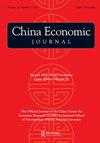RCEP: a strategic opportunity for multilateralism
IF 2.3
Q1 ECONOMICS
引用次数: 17
Abstract
ABSTRACT East Asia’s Regional Comprehensive Economic Partnership (RCEP) agreement was concluded in a time of heightened uncertainty in the global economy and in the middle of the largest economic downturn in almost a century from a pandemic-induced global recession. The agreement consolidated the 10 member ASEAN’s free trade agreements with Australia and New Zealand, and the three northeast Asian economic powers China, Japan and South Korea. RCEP's economic cooperation agenda incorporates ASEAN processes which go beyond helping countries to implement the agreement and has potential to expand cooperation to new areas. This economic cooperation process makes RCEP a living agreement that can serve the needs of members as they evolve. It can also be used to embrace non-RCEP members, especially India, around particular agendas. The agreement is an important opportunity for China to use the RCEP framework to trial reforms and demonstrate its commitment to broader international multilateral liberalisation and economic cooperation.RCEP:多边主义的战略机遇
摘要东亚区域全面经济伙伴关系协定(RCEP)是在全球经济不确定性加剧之际缔结的,也是在一场由大流行病引发的全球衰退引发的近一个世纪以来最大的经济衰退中。该协议巩固了东盟10个成员国与澳大利亚和新西兰以及东北亚三大经济大国中国、日本和韩国的自由贸易协定。RCEP的经济合作议程纳入了东盟进程,这些进程不仅有助于各国执行协议,而且有可能将合作扩大到新的领域。这一经济合作进程使RCEP成为一项活的协议,可以随着成员国的发展而满足其需求。它还可以用于围绕特定议程接纳非RCEP成员国,尤其是印度。该协议是中国利用RCEP框架试行改革并展示其对更广泛的国际多边自由化和经济合作的承诺的重要机会。
本文章由计算机程序翻译,如有差异,请以英文原文为准。
求助全文
约1分钟内获得全文
求助全文

 求助内容:
求助内容: 应助结果提醒方式:
应助结果提醒方式:


